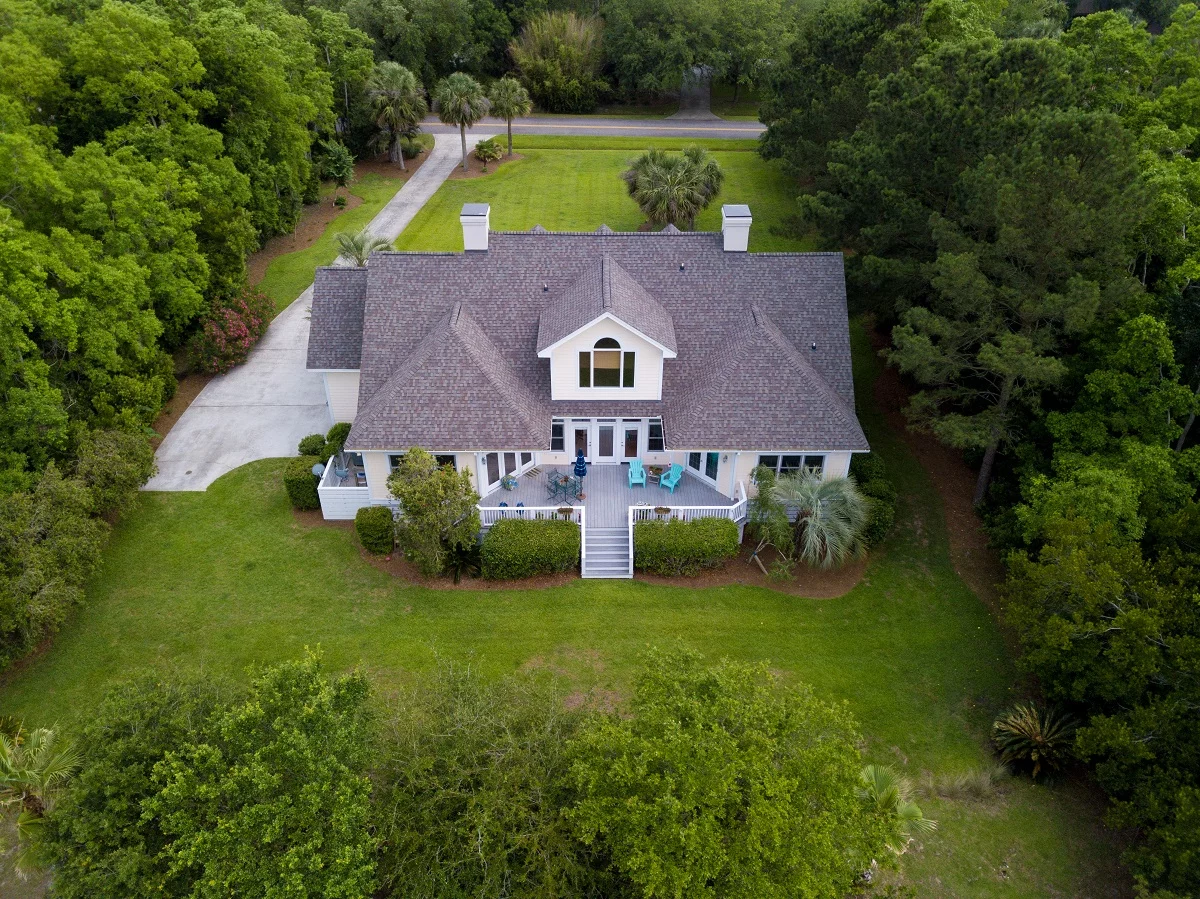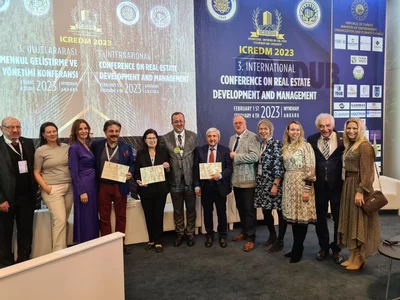
«The buyer won’t stop dreaming of a seaside castle». What is going on in the overseas real estate market
COVID-19, which have bulldozed many business areas (tourism, catering and the entertainment industry), also affected those who sell foreign property. It is no secret that the owners of some European agencies working for their buyers from abroad are our former compatriots. To find out how colleagues from Spain, Germany, Cyprus and other countries are experiencing the crisis, the organizers of Moscow International Property Investment Forum (MIPIF) held an online conference «The Overseas Property Market: A New Reality». Realting.com listened to the forecasts from the experts and market participants in different countries and mapped its own picture of a current situation.
«What was worth a million — is now sold for 300 thousand»
Let’s note that all the spokespersons of the online conference could be divided into optimists and pessimists. While some drew terrible scenarios for the market and called for «cutting costs,» others insisted on fruitful lockdown, advised to develop online activities, train staff and turn on creativity. At that, almost everyone agreed that the pandemic will end someday, which means that the buyer, one way or another, with return. Perhaps, even more motivated to relocate than before. After all, those who are not satisfied with the lockdown measures implemented in Russia, Ukraine, Kazakhstan or Belarus will start more actively hunting for options to buy real estate abroad.
One of the online audience speak was Andrei Maslak, expert on forecasting crises and their dynamics. He urged colleagues to change quickly, promptly and in the right direction.
— What should be done today? First is to drastically reduce costs without waiting for the end of the pandemic. This applies to staff and rented offices. Second, you must understand that in a crisis, the client will try to find a seller himself avoiding intermediary services. It means that real estate agencies must urgently develop other competencies — legal services, partnerships with banks, etc. Third, it is a must for the agencies to include all their creativity and persuasion in order to retain the client.

Speaking about a product that should be offered to potential customers, Andrei Maslak marked it as «what used to be worth a million, but now is sold for 300 thousand.» That is the exact option the post-coronavirus client will primarily seek. The logic of the buyer is clear: he did not stop dreaming of a seaside castle, just now he is wishing to buy this castle for less money. In order to make such transaction true, the agent should convince the property owner to reduce the price without waiting for better times.
Likewise, Andrei Maslak advised agencies to intensify their relations with banks — in a crisis, banking institutions will have to become more flexible and offer the most exclusive conditions.
The expert didn’t escape commercial real estate as well. In his opinion, many hotels and even whole hotel chains will be put up for sale in the near future. In this case, those who have long looked at this market will get a chance to purchase some properties simply in exchange for paying off debts. At the same time, mini-hotels and small accommodation facilities, even with a small financial cushion, will be able to survive the pandemic and return to operations.
Further, the conference switched to the «online round table» format, connecting the heads of real estate agencies from Russia, Spain, Czech Republic, Germany, Turkey, Cyprus and other countries. Colleagues talked about how they are quarantined, whether their government helps businesses and current situation with demand for properties.
«At the beginning of the pandemic, we saw a demand for countryside real estate»
For example, Ekaterina Demidova, Director of DEM Group from Germany noted the strong support of small business from the German government: companies with up to 5 people received one-time allowance in the amount of 9 thousand euros, companies with up to 10 people received 15 thousand euros. At the same time, operation of real estate agencies, as well as construction companies, is not banned and not stopped.
«Of course, there are much fewer viewings now, but there is still deal-making. Managers conduct video showings and online consultations. Moreover, thanks to the crisis, Germany is moving away from the seller’s market. If before it was the seller who chose whom to sell his apartment or house, now — people who are hunting for housing, it becomes a little easier».

Yegor Khlebnikov, Director of Getberg agency (Czech Republic), called lockdown an excellent time for the final buyer. So, in a crisis, Czech banks reduced interest rates on mortgages. In addition, the applicant now needs only 10% of his own funds to purchase a property while the remaining 90% of the cost of housing will be paid by the bank. Yegor said that in the first week of March, due to coronavirus, requests fell by 90%, but within a few days the demand (especially for countryside real estate) increased markedly. As for the support of private businesses, they were granted deferral of rentals, taxes and other benefits.
Unlike several European countries, Russian real estate agents have to consider themselves only.
— Since 1999, we have experienced several crises, and I think that we have already got some kind of immunity against them, — says Ekaterina Rumyantseva, Chairman of the Board of Directors at Kalinka Group. — In our company, we decided to spend this period with benefit. First, we pump up our staff competencies (for this, we conduct daily training webinars). Second, we are actively working on Internet platforms and SEO optimization. Third, we are trying to qualitatively satisfy the demand in the market today. So, at the very beginning of the stay-at-home, while interest in city apartments fell, we saw an unprecedented increase in requests for countryside real estate. It seemed to me that everyone who could afford residence outside Moscow began to urgently hunt for options there. I think this trend will be of interest in the summer. After all, those who used to spend their vacations abroad this year will most likely stay in Russia, which means they will also be hunting for houses and summer cottages.
Evgenia Paraskevaidou from APL Alexander Real Estate Ltd (Cyprus) is sure that houses and villas will be in demand in the future. She says that before this year, the Cyprus villa market was in decline; but this season the situation tends to change.
— Cyprus is a small island. Spread of coronavirus here is not so scary. Therefore, I think our industry won’t be facing a serious shock. Of course, now the business has slowed down, but after a few months the attractiveness of Cyprus will not disappear. The rule of rarity works here —the island real estate is unlikely to ever go into the inexpensive segment.

«Requests are getting ridiculous. Many believe that prices will fall down to a miserable amount»
While many go to online consultations and online sales, in some countries it is beyond local mentality. For example, Julia Gayevskaya from the agency Villa Antalya (Turkey) indicated the following point of view: Turkish sellers prefer cash only. She noted that both Turkish developers and the buyers from CIS countries got used to «feddy».
— My clients do not wish to transfer money through the bank; they do not want to show these transfers. Therefore, online transactions of Russians, Ukrainians or Kazakhs with Turkey — are complicated.
In addition, Julia spoke about the ridiculous requests that came to the agency during quarantine. Thus, some individuals, having read the news, decided that prices would fall down to a miserable amount and asked to select something decent on the beach for 20 thousand euros. At the same time, since Turkish developers directly depend on the European currency rate (they have to pay for the purchase of land and building materials), one should not expect any significant discounts in the Turkish direction.
Real estate in Spain is also unlikely to fall in price, said Alexander Dashevsky, Head of EspanaTour. So far, the only concessions the developers are ready to make — some bonuses for customers in the form of furniture or repairs. In addition, Spanish companies started motivating realtors by increased percent of commission.
Olga Katrich, Director of Justreal drew her colleagues’ attention to increase in the number of requests for real estate purchase to obtain a passport of the EU, the USA, South Korea and other countries with the purpose of relocation, studying abroad. This fact suggests that number of people who have decided to change their place of residence is growing. And it is quite possible that coronavirus and the economic crisis will even accelerate the process.
In general, the conference confirmed that even in the lockdown conditions real estate agents keep on working. Someone conducts video conferences on residence permits, others create useful blogs, and some provide their clients with remote consulting on «golden» visas. In any case, as one of the participants noted, the smartest and most flexible will survive. Who is it — we shall see in fall.
Photo: Envato























